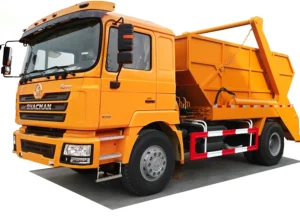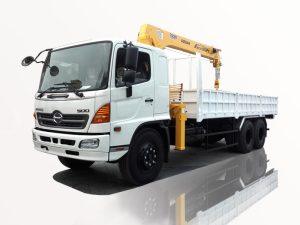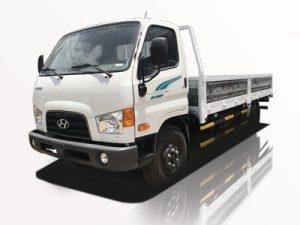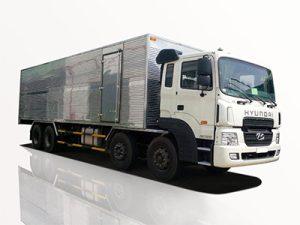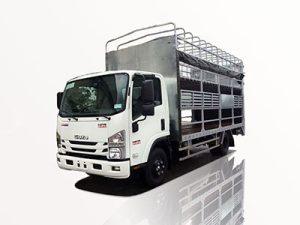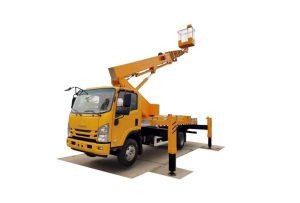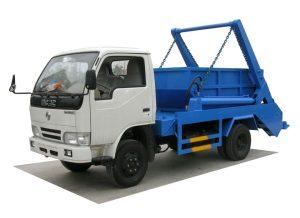Monday to Saturday - 8:00 -17:30
Ultimate Guide to Mini Tow Trucks: Everything You Need to Know
In an age where versatility and convenience are key, mini tow trucks have emerged as a vital component of the towing industry. These compact yet powerful vehicles provide efficient solutions for a variety of towing situations without the hassle of larger, cumbersome tow trucks. This article will explore everything you need to know about mini tow trucks, including their benefits, types, uses, and more.
What is a Mini Tow Truck?
A mini tow truck is a smaller towing vehicle that can handle light to medium loads. Unlike conventional tow trucks, which can be large and impractical for certain urban or tight settings, mini tow trucks are designed for agility and efficiency. They can navigate narrow streets and confined spaces, making them perfect for residential and urban environments where larger trucks may struggle.
Benefits of Mini Tow Trucks
1. Compact Size
Mini tow trucks are significantly smaller than traditional tow trucks, allowing them to operate in tight spaces. This compact size is advantageous for urban settings, where parking and maneuverability can be challenging.
2. Cost-Effectiveness
These trucks typically come at a lower price point compared to their larger counterparts. Additionally, they offer savings in fuel and maintenance costs, making them financially accessible for small businesses.
3. Lower Operating Costs
With smaller engines and lighter weights, mini tow trucks generally consume less fuel. This lower operational cost is attractive to towing companies looking to maximize their profit margins.
4. Versatility
Mini tow trucks can be equipped with various attachments for different towing situations, including flatbeds and wheel lifts, making them adaptable for many tasks.
Types of Mini Tow Trucks
1. Wheel Lift Tow Trucks
Wheel lift mini tow trucks use a hydraulic lift system to raise either the front or rear of a vehicle, allowing the remaining wheels to roll freely. This system is often used for cars and smaller vehicles.
2. Flatbed Mini Tow Trucks
Flatbeds are designed to transport vehicles with all four wheels off the ground. They provide stability and are particularly useful for damaged or inoperable vehicles.
3. Integrated Tow Trucks
Integrated mini tow trucks combine the towing mechanism with the vehicle’s chassis. This design allows for smoother operation and improves weight distribution, making it easier to navigate on different terrains.
4. Tow Dollies
Tow dollies are smaller attachments that allow vehicles with two wheels to be towed behind a mini tow truck. They are particularly useful for transporting front-wheel-drive vehicles.
How to Choose the Right Mini Tow Truck
1. Determine Your Towing Needs
Analyze the types of vehicles you plan to tow. This includes considerations such as weight, size, and the frequency of use.
2. Consider the Engine Power
Select engine specifications that match your towing capabilities. Look for mini tow trucks with sufficient horsepower and torque to manage your typical towing operations.
3. Evaluate the Build Quality
Research reputable brands and check reviews for durability. A reliable mini tow truck should withstand rigorous use while maintaining its functionality.
4. Assess Safety Features
Look for mini tow trucks with safety features such as anti-lock brakes, stable trailers, and secure tie-down systems to ensure safe transportation.
Common Uses of Mini Tow Trucks
1. Roadside Assistance
Mini tow trucks are commonly used for emergency roadside assistance, providing help for flat tires, battery jump-starts, and locked-out vehicles.
2. Vehicle Transport
They are utilized by car dealerships and service stations for transporting vehicles between locations or for transporting inoperable cars to repair shops.
3. Private Property Towing
Mini tow trucks can be employed by property management companies to remove unauthorized or abandoned vehicles from private lots.
Practical Tips for Operating a Mini Tow Truck
1. Regular Maintenance Is Key
Maintaining your mini tow truck ensures its longevity and reliability. Regular oil changes, brake checks, and tire inspections are essential.
2. Training and Certification
Invest in proper training for drivers. Understanding towing techniques and safety measures can prevent accidents and damage to vehicles being towed.
3. Utilize the Right Equipment
Always use appropriate tow equipment that is rated for the weight and size of the vehicle you are towing to ensure safety and compliance with regulations.
4. Keep Clear Communication
Maintain open communication with your team and clients during towing operations to ensure clarity and an efficient process.
Understanding the Regulatory Framework
1. Licensing Requirements
Most regions require specific licenses and certifications to operate a tow truck. Ensure that you comply with local and state regulations.
2. Insurance Considerations
Invest in adequate insurance coverage for liability, vehicle, and equipment to protect your business from potential claims.
3. Knowledge of Local Towing Laws
Being familiar with local towing laws and regulations ensures that operations are conducted legally and ethically.
Environmental Considerations in Towing
1. Emissions Regulations
Stay updated on emissions standards and choose eco-friendly vehicles when possible. Minimizing the environmental impact is essential in today’s world.
2. Waste Disposal
Ensure that all fluids, materials, and equipment are disposed of correctly when dealing with damaged vehicles. Following proper disposal methods minimizes environmental harm.
Cost Analysis of Owning a Mini Tow Truck
| Expense Type | Estimated Cost (Annual) |
|---|---|
| Purchase Cost | $25,000 – $50,000 |
| Insurance | $1,200 – $3,000 |
| Maintenance | $500 – $1,500 |
| Fuel | $1,500 – $4,000 |
| Licensing & Fees | $300 – $800 |
Frequently Asked Questions (FAQ)
1. What types of vehicles can a mini tow truck tow?
Mini tow trucks can generally tow cars, motorcycles, and some light commercial vehicles. Always check the truck’s specifications for weight limits.
2. Are mini tow trucks suitable for long-distance towing?
While mini tow trucks are designed for short distances, they can be used for long-distance towing as long as the vehicle’s weight does not exceed the truck’s capacity.
3. How do I maintain a mini tow truck?
Regular maintenance includes checking the oil, brakes, and tires, as well as ensuring that all towing equipment is in proper working order.
4. Do I need a special license to operate a mini tow truck?
Yes, most states require special licenses and certifications to operate a tow truck. Check your local regulations for specific requirements.
5. Can I use a mini tow truck for personal use?
Yes, mini tow trucks can be used for personal towing needs, such as assisting friends or family, but ensure you follow local laws regarding towing for compensation.
6. How much does a mini tow truck cost?
The price of a mini tow truck varies greatly depending on the model, age, and features, typically ranging from $25,000 to $50,000.


